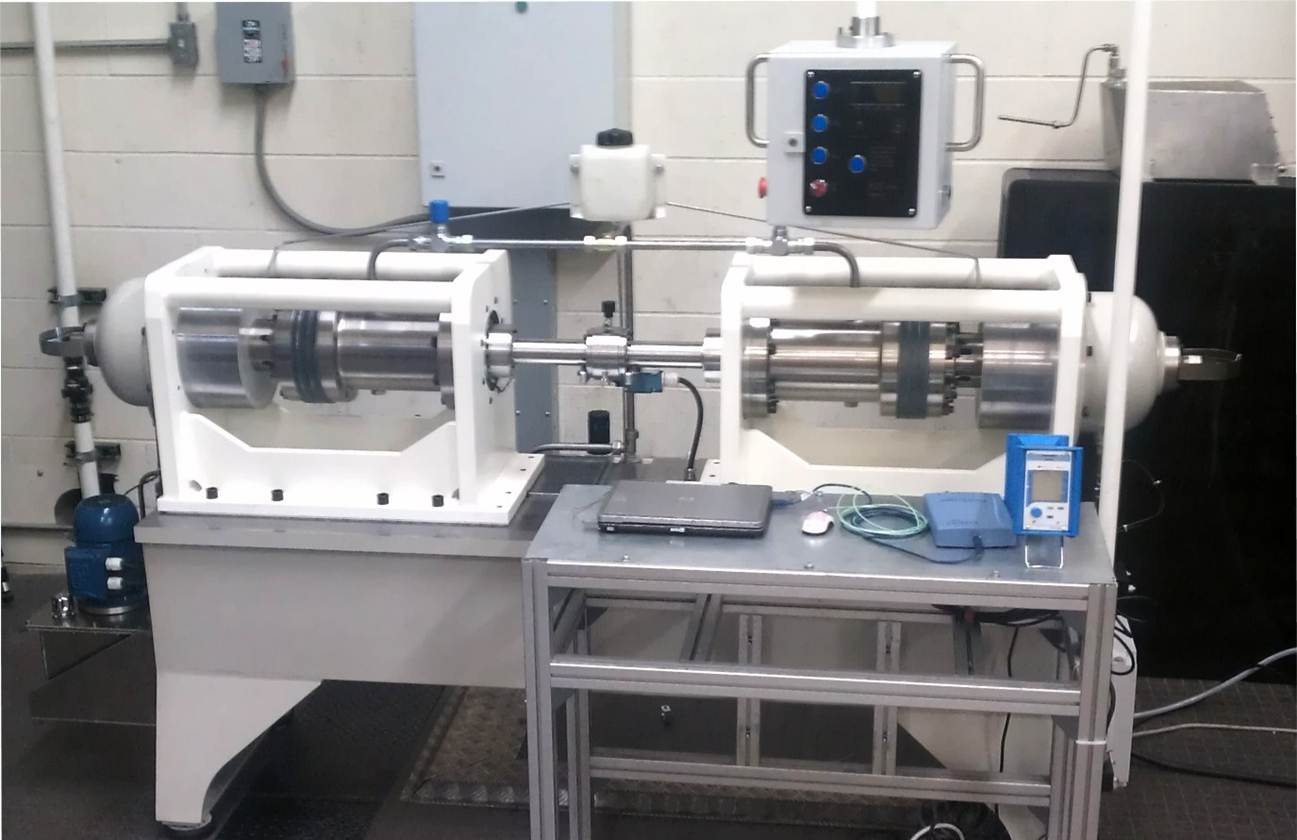

Acquisition of a Rapid Compression Machine for Chemical Kinetic Studies on Biofuels
An NSF Major Research Instrumentation (MRI)
Award

Principal Investigator:
Anthony J. Marchese, Ph.D.
Associate Professor
Department of Mechanical Engineering
Colorado State University
Fort Collins, CO 80524
Email: marchese@colostate.edu
Telephone: (970) 491-2328
Project Summary
Biodiesel has been shown to be highly effective in reducing CO, HC, PM and greenhouse gas emissions from diesel engines, decreasing dependence on petroleum imports and developing new markets for domestic agricultural products such as soybeans. Unfortunately, many research studies have also shown that biodiesel results in an increase in NOx emissions. The perceived NOx penalty associated with biodiesel threatens to limit its widespread acceptance since engine manufacturers and regulatory agencies continue to struggle with NOx emissions from mobile diesel sources.
The vast majority of the literature has focused on differences in physical properties (bulk modulus, boiling point, viscosity, etc.) between biodiesel and petroleum diesel as the mechanism for increased biodiesel NOx. However, there is increasing evidence that biodiesel NOx increases are related to fundamental differences in the chemical oxidation mechanism of biodiesel (i.e. methyl esters) in comparison to petroleum diesel. Unfortunately, very little work has been done to develop detailed chemical kinetic mechanisms for long chain methyl esters and to evaluate why these molecules result in increased NOx and decreased PM. A better understanding of biodiesel NOx and soot processes, will lead to the development of even cleaner burning renewable fuels.
In March 2008, CSU received an NSF Major Research Instrumentation Grant for the purchase of a rapid compression machine (RCM) that will be used for fundamental chemical kinetic studies on biofuels. An RCM is an instrument designed to simulate the compression stroke of a single engine cycle allowing auto-ignition phenomena to be studied in a much more controllable environment than that which is possible in an actual engine. The RCM will be integrated with a Cambustion CLD-500 fast response NO/NO2 analyzer that will allow time-resolved NOx measurements and a rapid quenching system that will enable sophisticated gas analysis of combustion products and intermediates. By performing experiments on biofuels (and surrogate fuels) in an RCM it will be possible to isolate the chemical kinetic effects on NOx and soot production from the variety of other processes that are present in an actual diesel engine. Moreover, data acquired using this system will be integral to developing a data base necessary for adopting a universally accepted reference fuel for biodiesel, such as methyl oleate. Development of an RCM capability dedicated to alternative fuels research will effectively bridge the gap between the handful of fundamental combustion studies on smaller biodiesel surrogates and the multitude of engine studies in which the underlying mechanisms responsible for pollutant emissions are difficult to isolate.
Project Personnel
Anthony Marchese, PI
Last Updated: August 5, 2008